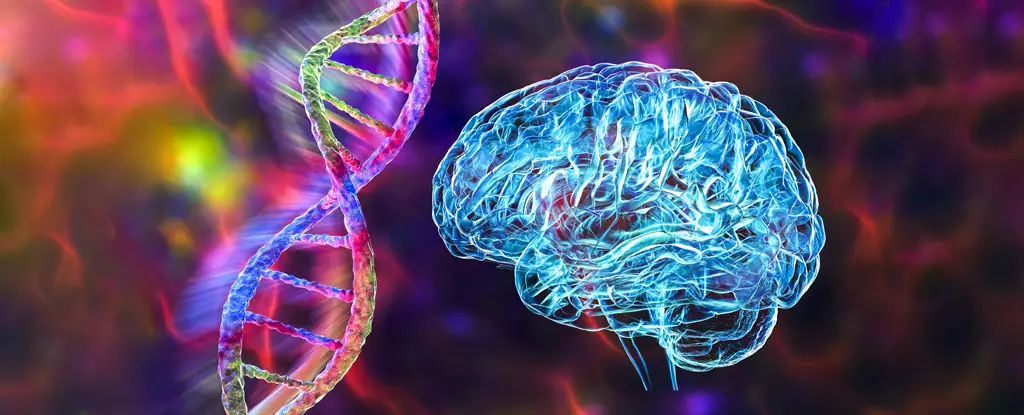Recent advancements in genetic research have shed light on the complex interplay of various psychiatric disorders, revealing an intriguing shared genetic foundation among eight prevalent conditions. A thorough investigation by scientists has pinpointed several genetic variants common across disorders such as autism, ADHD, schizophrenia, and bipolar disorder. This study aims to unpack the extended roles of these genes in brain development, suggesting promising avenues for treatment that could simultaneously address multiple psychiatric conditions due to their overlapping genetic architecture.
At the core of this inquiry is the concept of pleiotropy, where specific genetic variants influence multiple traits or disorders. A pertinent example is the compelling link between autism and ADHD, where a significant overlap in genetic predisposition exists. Understanding these connections is pivotal, as data indicates approximately 70% of individuals diagnosed with autism may also show symptoms of ADHD, reflecting familial clustering of such disorders. Coincidentally, this commonality underscores the need for further exploration into the genetic variants that members of this group share.
To examine the genetic underpinnings, researchers delved into nearly 18,000 genetic variants associated with the aforementioned disorders. They conducted experiments by incorporating these shared and unique gene variations into precursor cells destined to develop into neurons. This simulation allowed them to observe how these genes influence gene expression during human brain development. Remarkably, they identified 683 variants that played significant roles in gene regulation, laying the groundwork for deeper analyses within the dynamic environment of developing mouse neurons.
The findings revealed that the pleiotropic variants were pivotal in establishing more intricate protein-to-protein interactions compared to those unique to specific psychiatric disorders. This suggests that certain genes have far-reaching effects throughout various brain cells, thus influencing multiple developmental phases. The implications of this research extend beyond academic inquiry; understanding these genetic dynamics could pave the way for innovative treatment strategies aimed at mitigating several psychiatric disorders collaboratively.
While the elucidation of pleiotropic variants opens new pathways for research, it also presents challenges in classifying psychiatric disorders. The complexity introduced by shared genetic traits complicates traditional diagnostic categories and raises essential questions regarding how to approach treatment in clinical settings. Embracing the overlapping nature of these conditions, future research must advance in distinguishing the subtle distinctions among them while also leveraging their genetic relationships to develop comprehensive therapeutic interventions.
The symbiotic relationship between genetic variants and psychiatric disorders continues to be a thriving area of study. As researchers forge ahead in unraveling these complex interactions, the hope remains that such discoveries will ultimately transform our approach to understanding and treating mental health conditions, fostering greater acceptance of the interconnected nature of psychological wellbeing.


Leave a Reply